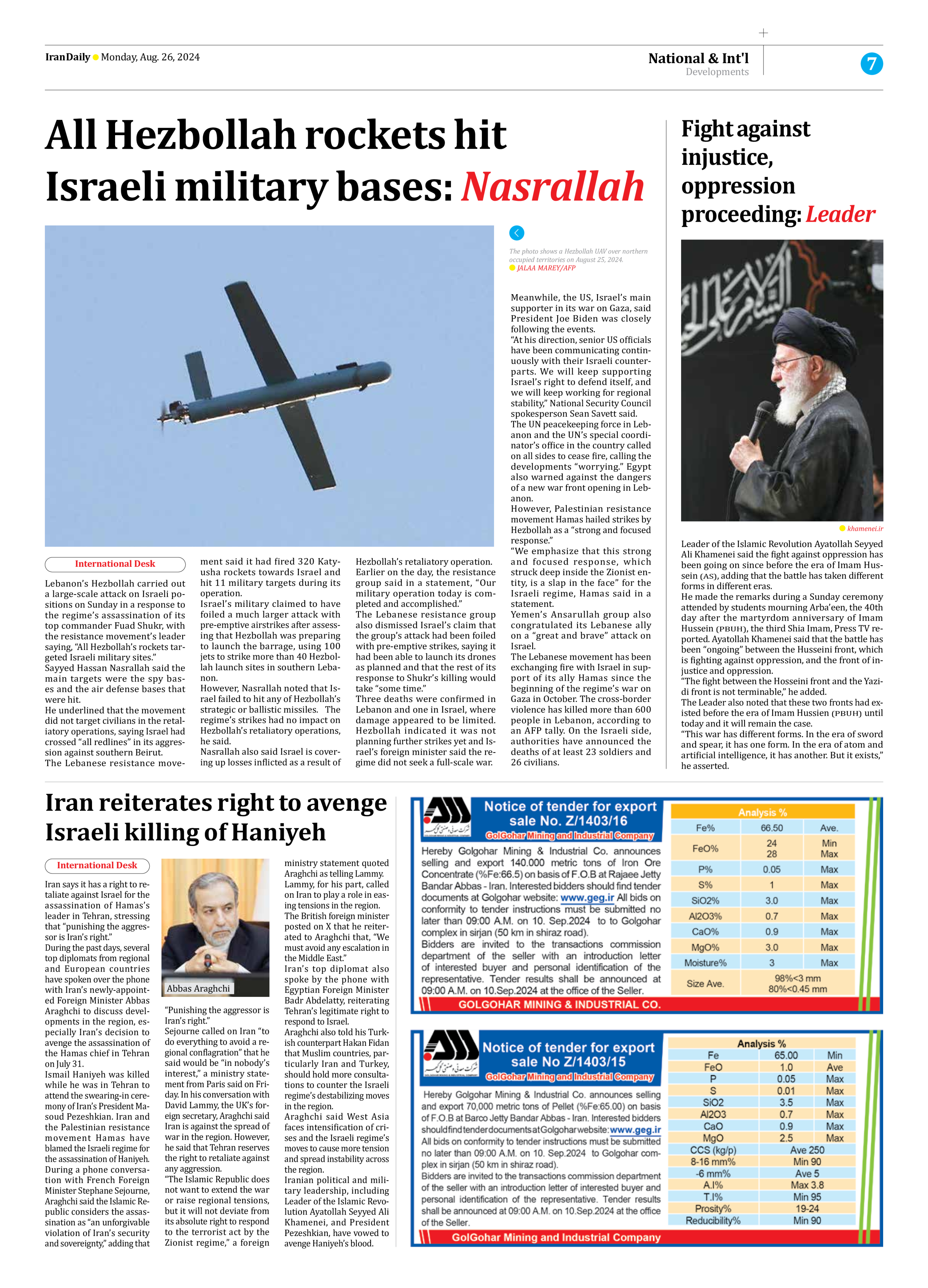
Copy in clipboard...
Iran reiterates right to avenge Israeli killing of Haniyeh
During the past days, several top diplomats from regional and European countries have spoken over the phone with Iran’s newly-appointed Foreign Minister Abbas Araghchi to discuss developments in the region, especially Iran’s decision to avenge the assassination of the Hamas chief in Tehran on July 31.
Ismail Haniyeh was killed while he was in Tehran to attend the swearing-in ceremony of Iran’s President Masoud Pezeshkian. Iran and the Palestinian resistance movement Hamas have blamed the Israeli regime for the assassination of Haniyeh.
During a phone conversation with French Foreign Minister Stephane Sejourne, Araghchi said the Islamic Republic considers the assassination as “an unforgivable violation of Iran’s security and sovereignty,” adding that “Punishing the aggressor is Iran’s right.”
Sejourne called on Iran “to do everything to avoid a regional conflagration” that he said would be “in nobody’s interest,” a ministry statement from Paris said on Friday. In his conversation with David Lammy, the UK’s foreign secretary, Araghchi said Iran is against the spread of war in the region. However, he said that Tehran reserves the right to retaliate against any aggression.
“The Islamic Republic does not want to extend the war or raise regional tensions, but it will not deviate from its absolute right to respond to the terrorist act by the Zionist regime,” a foreign ministry statement quoted Araghchi as telling Lammy.
Lammy, for his part, called on Iran to play a role in easing tensions in the region.
The British foreign minister posted on X that he reiterated to Araghchi that, “We must avoid any escalation in the Middle East.”
Iran’s top diplomat also spoke by the phone with Egyptian Foreign Minister Badr Abdelatty, reiterating Tehran’s legitimate right to respond to Israel.
Araghchi also told his Turkish counterpart Hakan Fidan that Muslim countries, particularly Iran and Turkey, should hold more consultations to counter the Israeli regime’s destabilizing moves in the region.
Araghchi said West Asia faces intensification of crises and the Israeli regime’s moves to cause more tension and spread instability across the region.
Iranian political and military leadership, including Leader of the Islamic Revolution Ayatollah Seyyed Ali Khamenei, and President Pezeshkian, have vowed to avenge Haniyeh’s blood.







